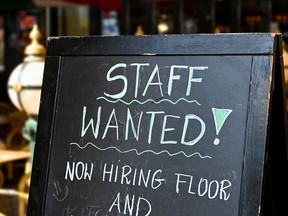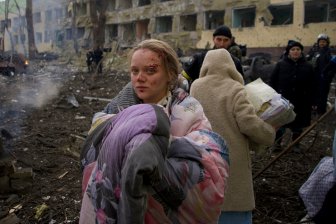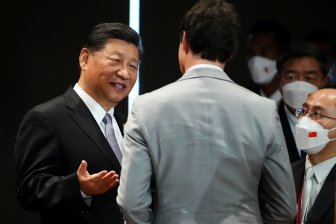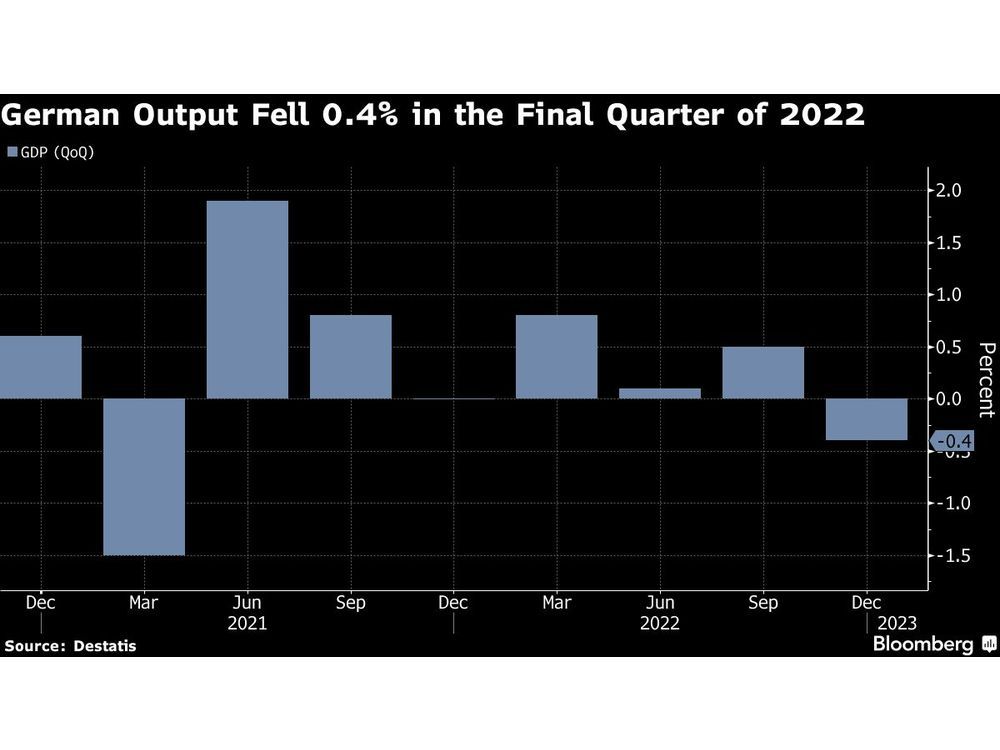Kevin Carmichael: A rare time when the Bank of Canada welcomes news that the economy has hit a rough patch

Article content
Canada might be headed for a recession after all.
Advertisement 2
Article content
Statistics Canada reported Feb. 28 that economic growth stalled in the fourth quarter, ending more than a year of strong post-pandemic increases in gross domestic product.
Article content
“Canada’s economy ended 2022 with a thud,” James Orlando, an economist at Toronto-Dominion Bank, said in a note.
The agency’s latest tally of economic output belies some of the strongest hiring on record, highlighted by an unemployment rate of five per cent in January and hourly wage growth in excess of four per cent. Those numbers caused some on Bay Street to second-guess predications that high inflation and a spike in interest rates would inevitably cause a downturn — and perhaps even a serious one.
Article content
But there is more to GDP than consumption. Household spending increased 0.5 per cent from the third quarter, so all those new jobs were indeed creating demand, but not enough demand to offset reduced business spending on inventories, machinery and equipment and housing. Statistics Canada put the annual rate of growth over the final three months of 2022 at 0.0 per cent, compared with a rate of 2.3 per cent in the third quarter.
Advertisement 3
Article content
It will be a rare time that the Bank of Canada welcomes news that the economy has entered a rough patch. Governor Tiff Macklem’s unprecedented series of interest rate increases last year were calibrated to quickly take the heat out of inflation without causing a sharp spike in unemployment. The central bank predicted higher interest rates would cause growth to come to a standstill for a period of time — a reasonable tradeoff, Macklem said, if that’s what’s required to get inflation back to two per cent.
The Bank of Canada predicted in January that GDP would grow at an annual rate of 0.5 per cent in the fourth quarter, so the economy appears to be unfolding as policymakers thought it would at the start of the year. That guarantees that Macklem will make good on his conditional promise to pause rate increases next week when he makes his next decision on where to set interest rates.
Advertisement 4
Article content
“Today’s mostly soft report won’t be a disappointment to policymakers, as the Bank of Canada is openly attempting to take some steam out of the economy,” Douglas Porter, chief economist at Bank of Montreal, said in a note to his clients. “And zero-point-zero growth is about as little steam as one could ask for, without pushing things into an outright downturn.”
GDP — the combination of consumption, investment, government spending and the net contribution from international trade — grew 3.4 per cent from 2021, pushing the size of Canada’s economy to $2.2 trillion.
Advertisement 5
Article content
A separate Statistics Canada report that measures monthly GDP by recording the value of goods and services produced by industry showed output dropped 0.1 per cent in December, while early information indicates that GDP increased 0.3 per cent in January, suggesting the economy was resisting toppling into a recession, although it’s too soon to make the conclusion. Higher debt-servicing costs represent a headwind for consumption, as will a slower pace of wage increases.
“Weaker demand is yet to come,” Claire Fan, an economist at Royal Bank, said in a note.
• Email: kcarmichael@postmedia.com | Twitter: carmichaelkevin
Canada's economy stalls, signalling hiring spree might not be enough to ward off recession - Financial Post
Read More





:format(jpeg)/cloudfront-us-east-1.images.arcpublishing.com/tgam/XLUZT2EAOVIZJL27F5ZRJA24HI.JPG)










 (
(
Comments
Postmedia is committed to maintaining a lively but civil forum for discussion and encourage all readers to share their views on our articles. Comments may take up to an hour for moderation before appearing on the site. We ask you to keep your comments relevant and respectful. We have enabled email notifications—you will now receive an email if you receive a reply to your comment, there is an update to a comment thread you follow or if a user you follow comments. Visit our Community Guidelines for more information and details on how to adjust your email settings.
Join the Conversation